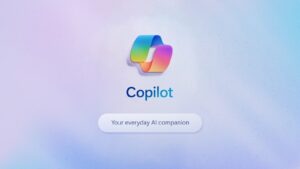Is Microsoft Dragon Copilot Exactly What We Need?

Microsoft Unveils Dragon Medical One: A Game Changer in Healthcare AI
Introduction to Dragon Medical One
Microsoft has entered the competitive landscape of healthcare AI tools with the introduction of Dragon Medical One (DMO). This innovative AI scribe is specifically designed to alleviate the burnout and fatigue that many healthcare providers face, which according to Microsoft affects 70% of clinicians. This new tool aims to help doctors spend more quality time with their patients rather than dealing with paperwork.
Competing Products in the Market
DMO is not the only player in this technology domain. It will face competition from other notable healthcare AI tools such as:
- Abridge
- Athelas
- Suki
Microsoft asserts that its offering surpasses these competitors thanks to its comprehensive integration with Electronic Health Records (EHR) and robust security features. Notably, DMO is equipped with tools to ensure compliance with important health data protection regulations, including HIPAA, HITRUST CSF, and GDPR.
Key Features of Dragon Medical One
Deep Integration with DAX Copilot
A standout aspect of DMO is its integration with Microsoft’s DAX Copilot. This feature provides ambient listening capabilities during doctor-patient consultations.
- Real-time Documentation: DAX can automatically generate summaries from discussions between healthcare providers and patients. This allows for immediate recording of information.
- Direct Dictation: DMO enables doctors to dictate medical records in real-time. If errors occur or if changes are necessary, clinicians can modify entries on the spot.
This functionality means that healthcare professionals can swiftly document a patient’s symptoms and diagnosis without needing to rely on later AI-generated summaries.
The Push for AI in Healthcare
Microsoft, along with other AI platform developers, aims to streamline healthcare processes. These tools are part of a broader push to enhance efficiency and minimize costs.
- Focus on Patient Care: The primary goal of such innovations is to liberate clinicians from time-consuming administrative tasks, allowing them to concentrate on patient care.
Market Adoption and Cybersecurity Concerns
Pricing information for DMO is yet to be announced, but its official release is anticipated in May. A recent survey conducted by CyberRisk Alliance (CRA) revealed that a significant portion of healthcare executives, around 90%, are planning to incorporate AI tools into their cybersecurity strategies by the end of the year. Equally noteworthy is the fact that half of the 200 surveyed professionals indicated that their organizations already employ AI technologies.
Future of AI in Healthcare
Survey respondents were optimistic about the role of AI in healthcare, with one stating that "the future of healthcare is going to be tech-based." However, concerns remain prevalent in the industry.
- Security and Privacy Risks: Approximately 69% of those surveyed cited data security and privacy as major issues regarding AI implementation. As healthcare increasingly relies on digital solutions like telehealth and electronic health records, safeguarding sensitive information is crucial.
According to a report by Fastly, the digitization of healthcare has heightened its vulnerability to cyber threats, especially concerning protected health information (PHI) and personally identifiable information (PII). IBM’s findings have confirmed that the healthcare sector faced the highest costs related to data breaches in 2024, underscoring the urgency of employing advanced technologies like AI and machine learning in enhancing cybersecurity measures.
Summary of Key Points
- Dragon Medical One is Microsoft’s new AI scribe tool aimed at reducing clinician burnout while increasing patient interaction.
- The platform integrates with the DAX Copilot for real-time documentation and modifications during consultations.
- AI is becoming widely accepted in healthcare, but concerns about data security remain significant.
- The healthcare industry must navigate the challenges posed by digital transformation while leveraging AI to improve operational efficacy.






